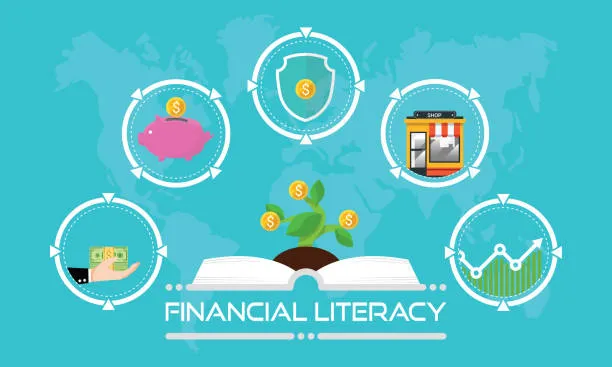How Fintechs Are Enhancing Financial Literacy in Kenya

Financial literacy, the ability to comprehend and effectively apply various financial skills such as personal financial management, budgeting, and investing, plays a pivotal role in individual and community economic empowerment and stability. In countries like Kenya, where a significant portion of the population remains unbanked or underbanked, the promotion of financial literacy is not just important; it’s essential for fostering inclusive growth. This is where fintech companies, with their innovative solutions and widespread accessibility, are stepping in and playing a transformative role in enhancing financial literacy across the nation.
In this comprehensive article, we will delve into the concept of financial literacy, its critical importance in Kenyan society, and the significant role fintech companies are playing in this arena. We will also explore how these companies, through their innovative solutions, are contributing to this essential aspect of economic development, thereby empowering individuals and communities to make informed financial decisions.
The role of financial literacy in economic development cannot be overstated. It is the key to unlocking the potential of individuals and communities, enabling them to make informed financial decisions that can lead to economic growth and prosperity. In Kenya, where access to traditional banking services is limited for many and a significant portion of the population relies on informal financial practices, the importance of financial literacy is even more pronounced.
Understanding Financial Literacy
Financial literacy is a broad concept that encompasses the knowledge, skills, and confidence required to make informed financial decisions. It involves understanding and applying various financial concepts such as budgeting, saving, investing, managing debt, and navigating the complex world of financial products and services. Being financially literate is not just about understanding these concepts, but also about being able to apply them in a way that benefits one’s financial situation.
For instance, understanding the concept of budgeting involves not just knowing how to allocate income towards various expenses, but also being able to track spending, identify areas of unnecessary expenditure, and make adjustments as necessary. Similarly, understanding investing is not just about knowing the different types of investments available, but also about being able to assess the risks and returns associated with each and choosing the ones that align with one’s financial goals and risk tolerance.
The Importance of Financial Literacy in Kenyan Society
In Kenya, where a significant portion of the population relies on informal financial practices and has limited access to traditional banking services, financial literacy plays a critical role in transforming lives. Financially literate individuals are more likely to avoid predatory lending practices, build savings, and invest wisely, thus breaking the cycle of poverty.
Moreover, improved financial literacy leads to more responsible borrowing, reduced over-indebtedness, and a stronger foundation for entrepreneurship and small business development. By understanding the implications of borrowing and the importance of repaying debts on time, individuals can avoid falling into a debt trap. They can also make better use of credit, leveraging it to invest in income-generating activities or to meet essential needs during times of financial stress.
Fintech’s Contribution to Financial Literacy

a. Digital Financial Education: Fintech companies are leveraging digital platforms to provide accessible and user-friendly financial education to Kenyans. These platforms offer interactive tools, tutorials, and personalized content to educate users on various financial concepts. They use engaging and easy-to-understand formats to explain complex financial concepts, making financial education more accessible and appealing to a wider audience.
b. Budgeting and Expense Tracking: Fintech apps are helping individuals develop healthy financial habits by offering budgeting tools and expense trackers. These tools enable users to set budgets, track their spending, and identify areas where they can cut back or save more. By providing real-time insights into their financial habits, these apps empower users to take control of their finances and make more informed decisions.
c. Mobile Banking and Payments: Fintech solutions like mobile money have simplified financial transactions for unbanked populations in remote areas. These services provide secure, efficient, and cost-effective ways to save, transfer money, and make payments, fostering financial inclusion and literacy.
d. Investment Education and Platforms: Fintechs like Eversend and Chipper Cash are democratizing access to investment opportunities by offering educational resources and simplified investment platforms. These platforms provide users with the information they need to understand different investment options, assess their risks and returns, and choose the ones that align with their financial goals.
e. Credit Scoring and Microloans: Credit fintechs are leveraging alternative data sources and machine learning to assess credit risk, enabling responsible lending to under-served individuals and small businesses. These platforms provide microloans to those without traditional credit histories, fostering financial inclusion while encouraging responsible borrowing.
Enhancing financial literacy in Kenya is crucial for fostering inclusive economic growth and empowerment. Fintech companies are playing a pivotal role in achieving this goal by providing accessible financial education, promoting responsible financial practices, and offering innovative solutions to previously under-served populations. Through digital financial education, budgeting tools, mobile banking, investment platforms, and responsible microloans, fintechs are contributing significantly to improving financial literacy in Kenya. As these efforts continue to gain momentum, Kenyans are better equipped to make informed financial decisions, break free from the cycle of poverty, and achieve a brighter financial future.